IRGC: Operation in Iraq start of more strikes against US across region
Commander of the Aerospace Division of Iran’s Islamic Revolution Guards Corps (IRGC) has described the IRGC’s recent revenge strikes targeting the US’ Ain al-Assad airbase in western Iraq as only “the starting point of a great operation,” which will grow in sphere to cover the entire region.
Brigadier General Amir-Ali Hajizadeh said the strikes, which were undertaken with the codename “Operation Martyr Soleimani” in the early hours of Wednesday, targeted one of the most important of America’s outposts, Tasnim News Agency reported on Thursday.
“The strikes were not meant to cause fatalities. We [actually] intended to deliver a blow to the enemy’s military machine,” he outlined.
On Friday, US airstrikes assassinated Lieutenant General Qassem Soleimani, commander of the IRGC’s Quds Force, and Abu Mahdi al-Muhandis, the second-in-command of Iraq’s Popular Mobilization Units (PMU), among others, after targeting their vehicles in Baghdad. The assassinations took place on direct orders of US President Donald Trump with US Department of Defense taking responsibility for the strike.
General Soleimani, who had won hard-earned reputation as the Middle East's most revered anti-terror commander, cooperated closely with the PMU and other regional counter-terrorism groups against the most deadly of the terrorist outfits to ever take on the region, including the Daesh Takfiri terrorists.
Soon after the assassination, Leader of the Islamic Revolution Ayatollah Seyyed Ali Khamenei said Washington was to face a “harsh revenge” for the atrocity.
Early on Wednesday, the IRGC fired volleys of ballistic missiles at Ain al-Assad in Iraq’s Anbar Province, and another outpost in Erbil, the capital of the semi-autonomous Iraqi Kurdistan, both of which housed US forces.
“We consider the blood of our martyrs to be invaluable,” Hajizadeh said, noting that “hitting the US bases, downing their aircraft, or even killing Trump [himself]” would not constitute a worthy compensation for the assassination of Lt. Gen. Soleimani.
The commander then cited Ayatollah Khamenei as asserting following the assassination that “the real blood money [to be paid by the US for the atrocity] is its complete expulsion from the region.”
Following the assassination, all regional nations and resistance groups will join in efforts to expel the Americans, Hajizadeh announced. “We hope that governments would take [relevant] initiative too,” he added, citing the example of the Iraqi parliament’s ratification of a bill following the atrocity that mandated withdrawal of all US-led forces from the Arab country’s soil.
Details of the ‘harsh revenge’
The commander of IRGC's Aerospace Division further stated that the IRGC only fired 13 missiles at the Iraq-based outposts, but had actually prepared several hundred for launch.
Had the goal sought by the operation was afflicting fatalities, the Islamic Republic could have targeted the facilities used to accommodate the US forces or their deployment centers, he said, adding, "“We were able to plan the operation in a way to kill 500 [American forces] in the first stage and if they responded [to our strike], they would have lost 4,000-5,000 [troops] in the second and third stages.”
The Islamic Republic, though, instead intended to strike the enemy’s “command and control center,” and succeeded in its goal by “destroying the central Command Center lying within Ain al-Assad.”
Hajizadeh emphasized that the US forces completely failed to deliver any response to the IRGC’s operation, although they were on full alert following the assassination of Lt. Gen. Soleimani and 12 unmanned aircraft in addition to a number of piloted ones were on surveillance mission above Ain al-Assad as the IRGC was about to launch its revenge attacks.
Trump has denied that the Iranian strikes led to any casualties, but Hajizadeh said the US military conducted at least nine sorties after the operation, taking the wounded to Jordan and the occupied territories, while Chinook helicopters transferred the injured Americans to the US hospital in Baghdad.
“It has been unprecedented since World War II that a shot would be fired at the US [military] with a country assuming responsibility for it,” the Iranian military commander said, referring to the Islamic Republic’s authorities’ outspoken and confident acknowledgement of the revenge operation.
The Iranian commander stated that the missile launch from Iran, was followed by an major electronic warfare as a result of which all unmanned aerial vehicles operated by the American forces were rendered inoperable, which dealt a major psychological blow to those forces.
VIDEO | 39th AU summit opens in Addis Ababa with focus on water security, peace, and development
VIDEO | Iran: The stronghold Washington lost
Anti-Iran ‘Munich circus’ shows Europe has lost geopolitical weight: Araghchi
Swiss to act as venue of next round of Iran-US talks: Report
Report: Over 50,000 soldiers fighting in Israeli military hold foreign citizenship
Danish PM warns US attack on Greenland would spell end of NATO
Power running out at key Gaza hospital, ICU patients at risk: Report
VIDEO | Press TV's news headlines



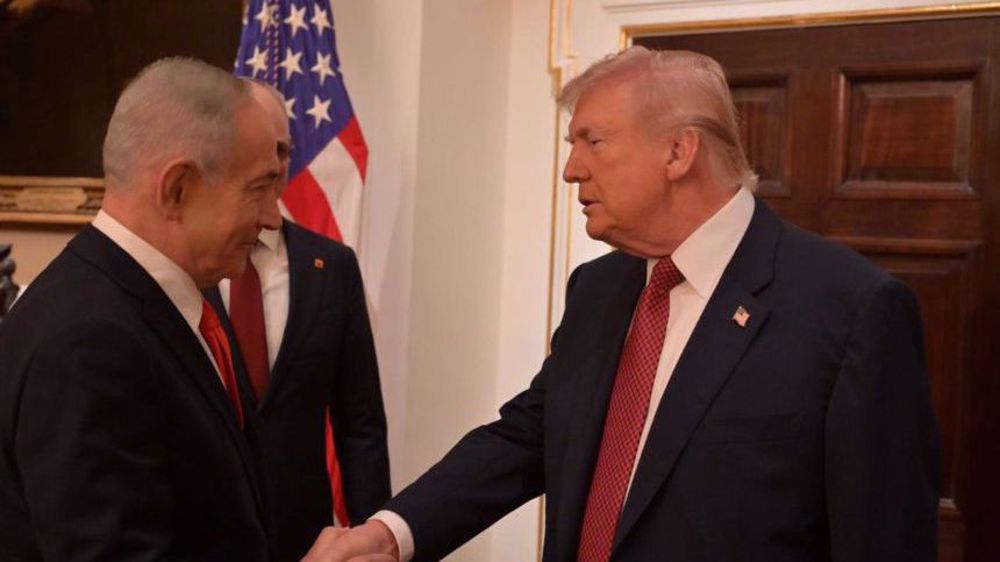
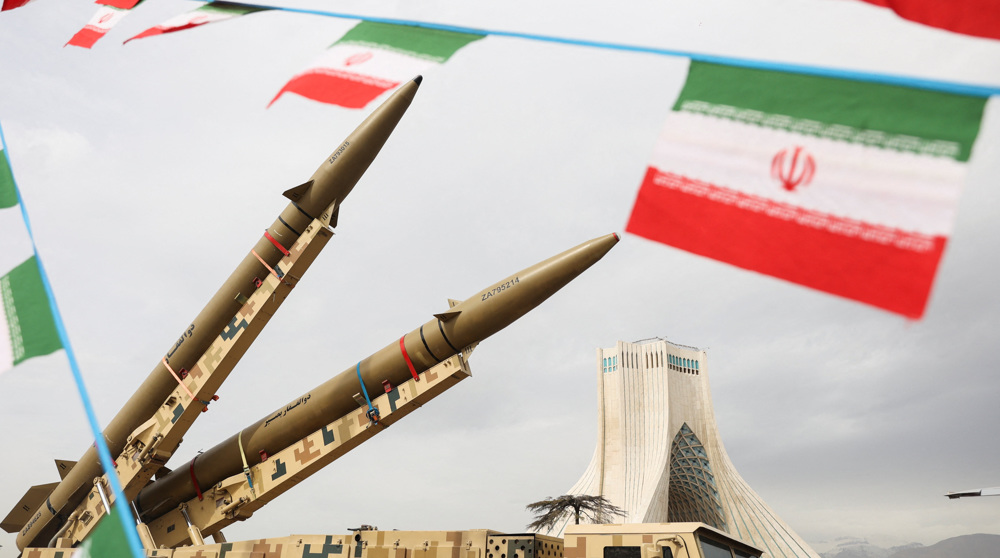
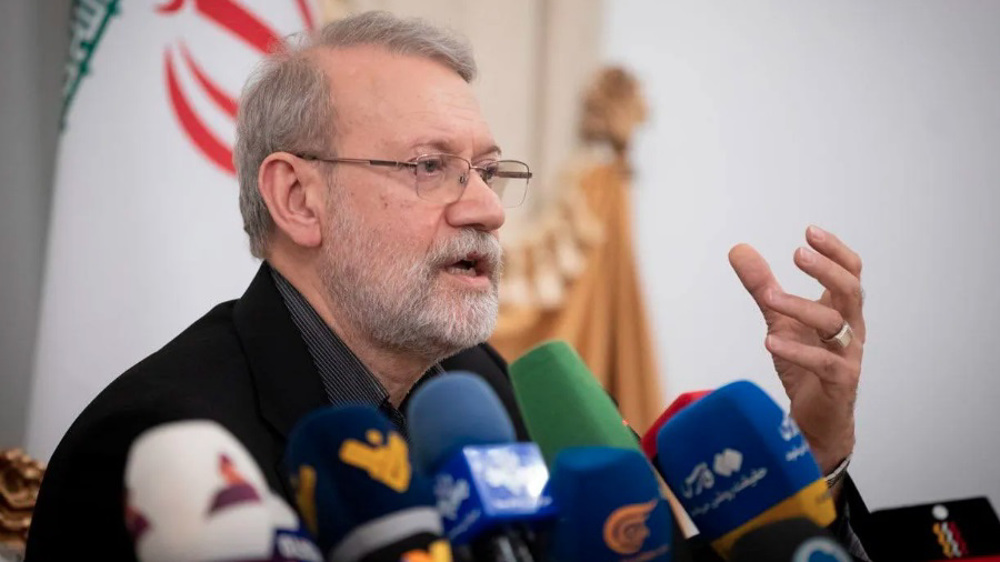



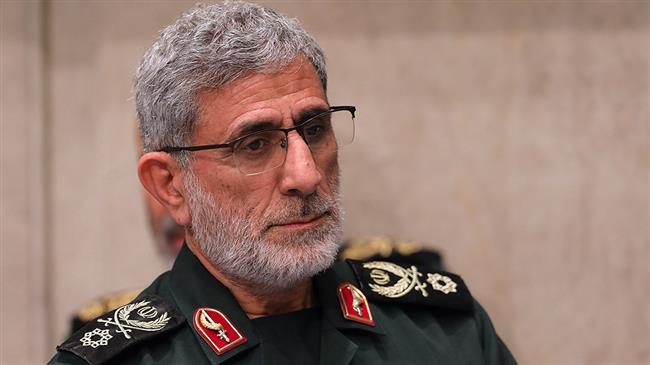
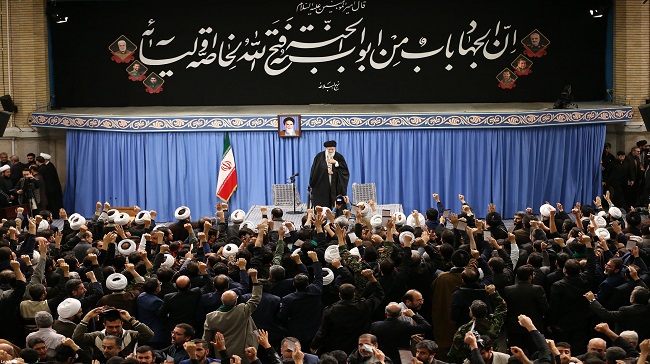
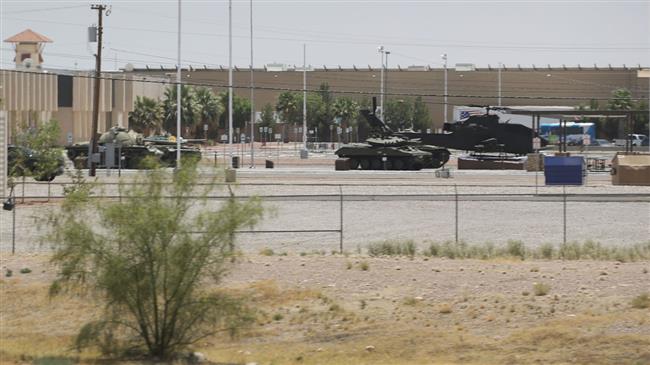

 This makes it easy to access the Press TV website
This makes it easy to access the Press TV website